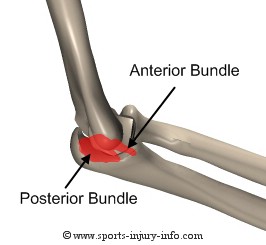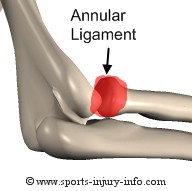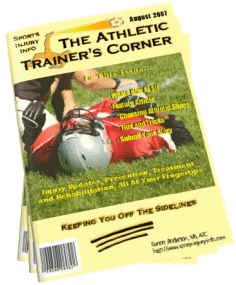Elbow Ligaments
The elbow ligaments help to keep the elbow stabilized during activities, and to provide feedback to the muscles. The ligaments of the elbow are comprised of the ulnar collateral ligament, the radial collateral ligament, and the annular ligament. Injuries to the elbow can often involve the ligaments, espcially the ulnar collateral ligament. This type of injury is very common with overhead throwers, especially pitchers.The Unlnar Collateral Ligament

The anterior band, seen in the picture, is the ligament that is injured with UCL sprains. Ever heard of Tommy John surgery? This is the ligament that is torn, and subsequently reconstructed during this procedure.
Injury to the UCL can be caused acutely, or can be degenerative over time. Overhead throwers can be affected, since they place a great amount of stress on the medial side of the elbow.
The posterior band of the UCL is not as commonly injured in sports.
The Annular Ligament









